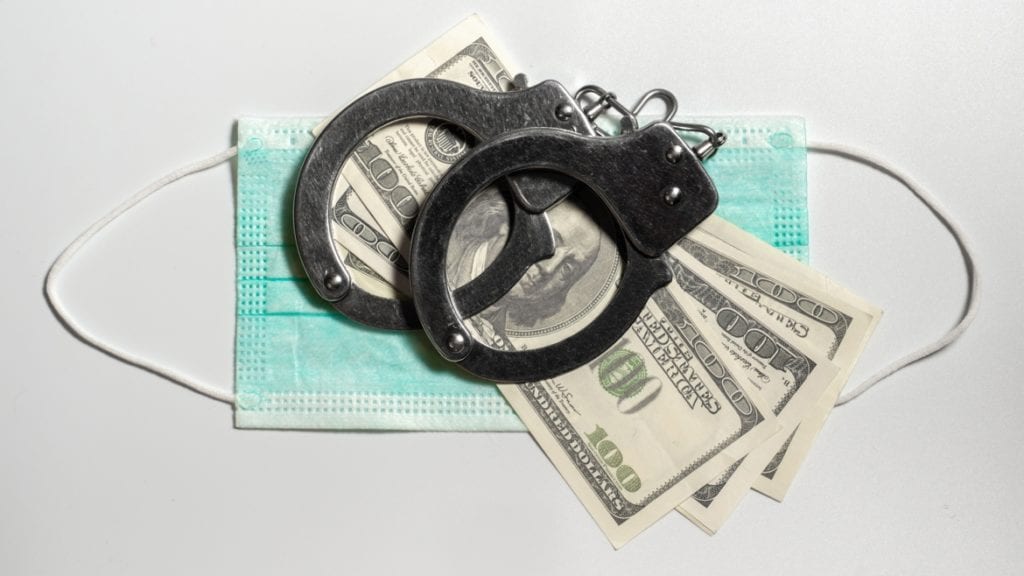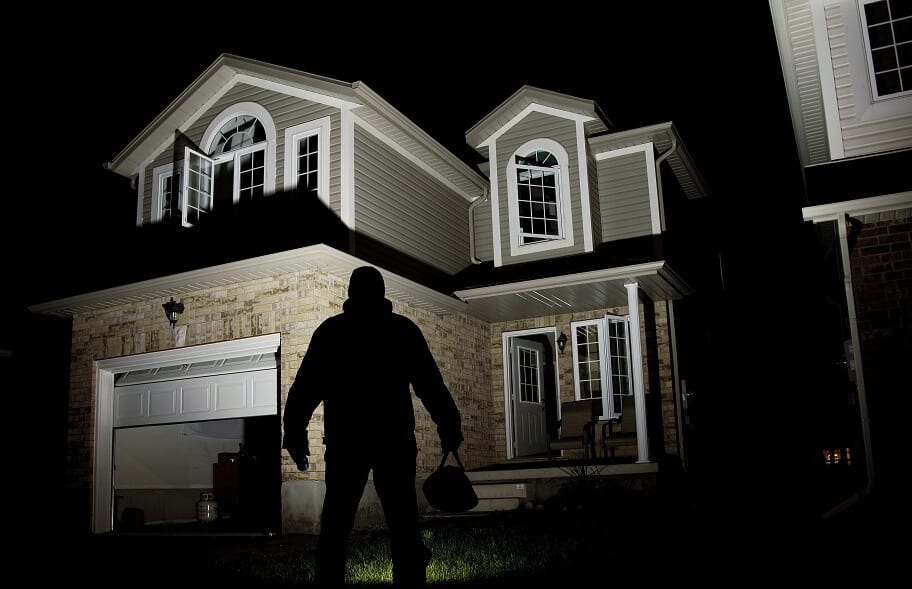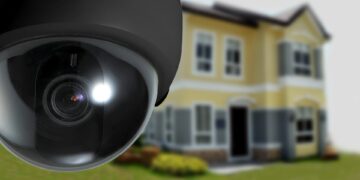It helps in situations like the COVID-19 pandemic to look for a silver lining. There are some here if you know where to look. For example, crime rates have taken a nosedive since coronavirus took hold in the U.S. That is good news. Nonetheless, we shouldn’t be any less diligent about fighting crime.
It is highly recommended to stick to the same security strategy – assuming one was in place – you were following prior to the pandemic’s onset. Homeowners without a security strategy can always take advantage of the time stuck at home to come up with one.

Crime by the Numbers
An April 6, 2023 report from USA Today says that crime rates plunged in cities and counties across the U.S. over the second half of March.” The story credits the COVID-19 pandemic inasmuch as it has caused millions of people to remain inside their homes for the last several weeks.
Data cited by USA Today shows that both traffic and in-person stops have declined as much as 92% in some places. This has led to a significant decrease in DUIs and drug arrests. At the same time, many reporting police agencies dealt with fewer assaults, robberies, and both residential and store burglaries. Thefts were also down.
Despite the encouraging numbers, there were some unpleasant numbers as well. For example, domestic disturbances and violence rose by 10% in some jurisdictions. Others noted increases in public nuisance complaints.

What It All Means
Note that the USA Today numbers are by no means scientific. They come from 53 law enforcement agencies regularly reporting their numbers to the FBI. With all that said, let us discuss what the data means. There are some lessons to be learned here.
It stands to reason that fewer people leaving their homes would mean fewer drivers on the roads. Any time you decrease traffic you also cut down on people driving under the influence. People staying put are also less likely to go out partying with their friends. This means less drug and alcohol use across the board.
DUI and drug statistics are simple enough. But what about the burglary statistics? Well, the fact is that most burglaries occur during normal working hours. Homes are typically hit when people are at work and their kids are in school. Now everyone’s home.
Burglars are cowards who do what they do with the intention of not getting caught. That is why they prefer empty homes. Not only are they less likely to burglarize occupied homes, but they are less likely to canvass neighborhoods during the COVID-19 pandemic. People are home. The burglars know it.
Business burglaries being down is a bit more complicated. Businesses are vacant now that they have been shuttered. This would seem to indicate an increase in store burglaries. But that is not the case. Maybe burglars are just as afraid of contracting coronavirus. Perhaps they are staying home from work, too.

Maintaining Security Diligence
We know that crime has plummeted over the last few weeks. That’s good. However, maintaining security diligence is as important today as it was two months ago. There are several reasons for this. First and foremost, the COVID-19 pandemic will pass at some point. Life will return to normal. That means criminals will resume their criminal activity.
Being lackadaisical about security procedures now could lead to the same behavior once life returns to normal. That would be an open door to criminals to take advantage of people who, weary from being stuck at home, are paying less attention to security.
The other thing to consider is that criminals might change their tune if the country continues to be locked down for several months. Criminals have no other source of income other than their criminal activity. They may be forced to take more chances and commit more crimes even though their chances of getting caught are higher.
That means homes could be burglarized even though they are occupied. Two months from now, we could be seeing an increase in home invasions. We might also see more car burglaries, more armed robberies, and so forth. This is why we cannot be any less diligent.

Making Your Home Safe
For the time being, the best we can do is work on keeping our own homes safe. That starts with basic principles like keeping doors locked 24/7 and keeping the shades drawn. It also means getting outside and making sure that your home can be clearly seen from the street. It means checking exterior lights to make sure they are working.
Homeowners without security systems would do well to get one. According to Vivint, a DIY home security system with a couple of outdoor video cameras, window and door sensors for the first floor, and smoke and CO detectors is the minimum. Extra cameras and sensors for second-floor windows can be added if a homeowner thinks them necessary.
To make the home as safe as possible, a security system should be monitored. It can be monitored by a professional service provider who keeps an eye on things 24/7. If that is not an option, homeowners should at least monitor their systems themselves. A good DIY system can send text and e-mail alerts and give homeowners access to their video cameras in real time.
Last but not least is the issue of door locks. Now more than ever, heavy-duty deadbolt locks are the way to go. Factory-installed door and window locks do not necessarily offer maximum protection. If your locks are not heavy-duty, take the time to replace them now.
Hearing that crime has plummeted over the last several weeks is good news. At least that is one positive thing we can say about being stuck at home due to coronavirus. Just the same, now is not the time to slack off and become lackadaisical. Now is the time to be as diligent as ever about maintaining a secure home in defense against those who would attempt to breach it.











